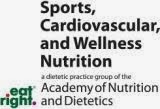“Training low” (with low carbohydrate stores) and
"competing high" (with muscles fully loaded with glycogen) as a means
to enhance competitive performance is receiving attention from coaches, elite
athletes, and researchers alike. A 2005 study (1) with untrained subjects
suggests that training with deplete glycogen stores can enhance adaptive muscle
responses to conditions that might occur at the end of a competitive event.
Training low might also reduce reliance on limited glycogen stores. When
Hansen’s subjects “competed” with loaded glycogen stores, they performed
better.
These results have raised questions and controversy. If you
restrict your carbohydrate intake during training, you will become unable to
train hard, and that can hurt your athletic ability. Sports dietitian Louise
Burke PhD of the Australian Institute of Sports suggests inserting a few
“training low” sessions into the training program where the focus is on making
“aerobic” gains. You would want to target the sessions in the week where
quality, intensity, or techniques are not as important.
You can train low by having either low blood glucose or low
muscle glycogen; both scenarios can happen during a second training session in
a day. Note: Adding caffeine to a “low” training session can enhance power by
about 9%, but this still does not match the power generated by fully
glycogen-loaded muscles plus caffeine.
Training low is not much fun. For most ordinary mortals,
staying well fueled on a daily basis is a smart investment. I suggest you fuel
your muscles on a daily basis with quality grains, fruits and vegetables. By
being well fueled, you'll be able to work hard and enjoy improving your
performance.
Best wishes,
Nancy
(1) Hansen A, C Fischer, P Plomgaard, J Andersen, B Saltin,
B Pedersen 2005.Skeletal muscle adaptation: training twice every second day
vs.training once daily. J Appl Physiol88(1):93-9
Nancy Clark MS RD CSSD
Sports nutrition counselor, consultant, speaker
www.sportsnutritionworkshop.com (Philly 1/24; Pitt. 2/7; online 24-7)
www.nancyclarkrd.com (books, handouts, PowerPoint talks)
Nancy Clark's Sports Nutrition Guidebook NEW Fifth Edition
Food guides for soccer, new runners, marathoners, cyclists
Twitter.com/nclarkrd iPhone app: Recipes for Athletes
1155 Walnut St, Newton Highlands, MA 02461
Phone: 617.795.1875 Fax: 617.963.7408
Sports nutrition counselor, consultant, speaker
www.sportsnutritionworkshop.com (Philly 1/24; Pitt. 2/7; online 24-7)
www.nancyclarkrd.com (books, handouts, PowerPoint talks)
Nancy Clark's Sports Nutrition Guidebook NEW Fifth Edition
Food guides for soccer, new runners, marathoners, cyclists
Twitter.com/nclarkrd iPhone app: Recipes for Athletes
1155 Walnut St, Newton Highlands, MA 02461
Phone: 617.795.1875 Fax: 617.963.7408










